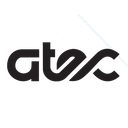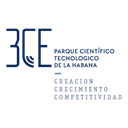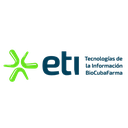Executive Secretary

2nd International Symposium on "Generation and Transfer of Knowledge for Digital Transformation"
1rd International Workshop on Semantic Web Technologies and Applications in the Artificial Intelligence of Things
Abstract
Many organizations use metrics or indicators to have concrete data that shows the operational performance of their processes or the assignment of resources. A effective monitoring of these with respect to knowledge exchange and consumption allows for successful application of the Knowledge Management System (KMS) to achieve strategic objectives. This article describes a model of indicators and indices for the evaluation of a KMS, which takes the results of the National Consultancy “Design of the Integrated Knowledge Management System” for the CONSAS project for food production chain, applied to 6 municipalities of two Cuban provinces. A mapping of project actors in high and low influence and dependence is carried out and the basic elements are established around four axes or dimensions. Each axis will derive its corresponding index at the municipal level, which will allow to verify the progress, setbacks, limitations and strengths in terms of knowledge management and innovation. The analysis of the calculations will allow pertinent corrections to be made in the Local Development Strategies, with the objective of establishing public policies aimed at strengthening human resources and the use of Science, Technology and Innovation; that articulates productive action with individual and collective knowledge and experiences. With the help of a computer platform, its scope goes beyond of food sovereignty and nutritional security, and the development at the municipal and national level can be generalized to other sectors or areas.
Resumen
Muchas organizaciones utilizan métricas o indicadores para tener datos concretos que muestran el rendimiento operativo de sus procesos o la asignación de recursos. Un seguimiento efectivo de ellas en torno al intercambio y consumo de conocimientos, permite una aplicación exitosa del Sistema de Gestión del Conocimiento (SGC) para alcanzar los objetivos estratégicos. En este artículo se describe un modelo de indicadores e índices para la evaluación de un SGC, que toma como base los resultados de la Consultoría Nacional “Diseño del Sistema Integrado de Gestión del Conocimiento” para el proyecto CONSAS en la cadena de producción de alimentos, en 6 municipios de dos provincias cubanas. Se realiza un mapeo de actores del proyecto en alta y baja influencia y dependencia y se establecen los elementos básicos en torno a cuatro ejes o dimensiones. Cada eje derivará en su índice correspondiente a nivel municipal, lo que permitirá constatar los avances, retrocesos, limitaciones y fortalezas en cuanto a la gestión del conocimiento y la innovación. El análisis de los cálculos permitirá hacer las correcciones pertinentes en las Estrategias de Desarrollo Local, con el objetivo de establecer políticas públicas orientadas al fortalecimiento del capital humano y a la utilización de la Ciencia, la Tecnología y la Innovación; que articule la acción productiva a los conocimientos, experiencias, saberes individuales y colectivos. Con ayuda de una plataforma informática, su alcance rebasa la soberanía alimentaria y seguridad alimentaria y nutricional, siendo generalizable a otros sectores o ámbitos el desarrollo a nivel municipal y nacional.
About The Speaker

M. Sc. Carlos Alberto Pereira Marín

Discussion




